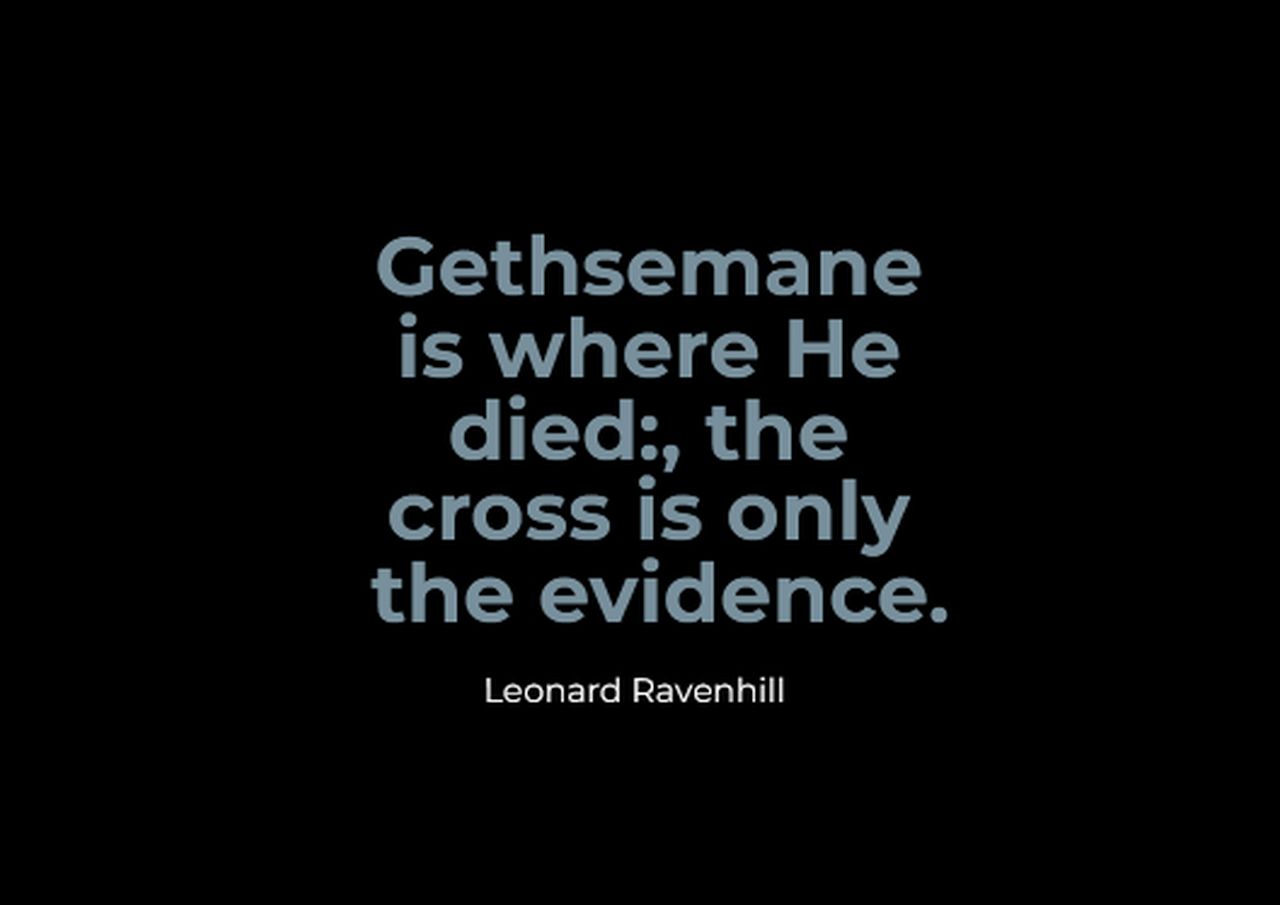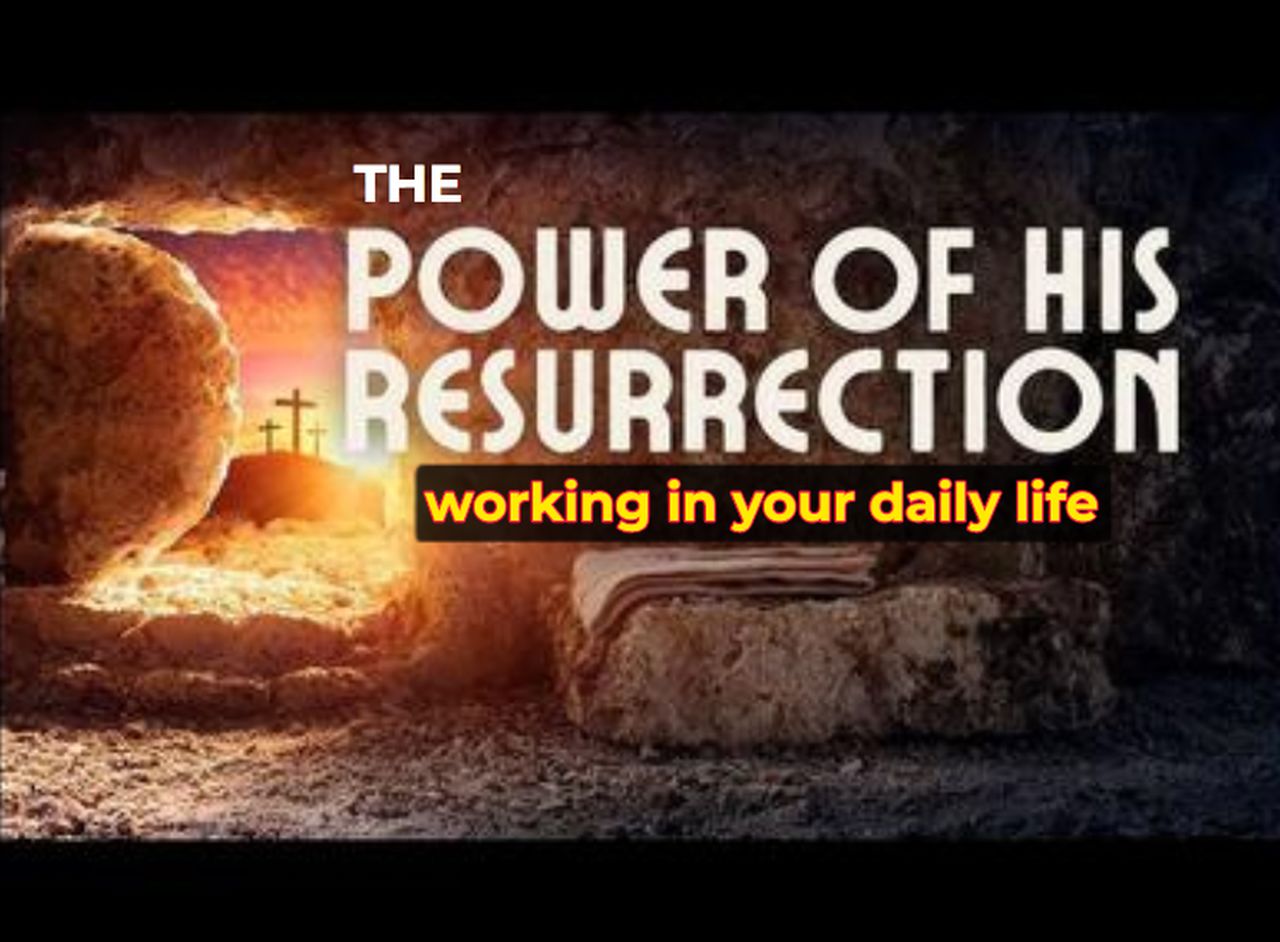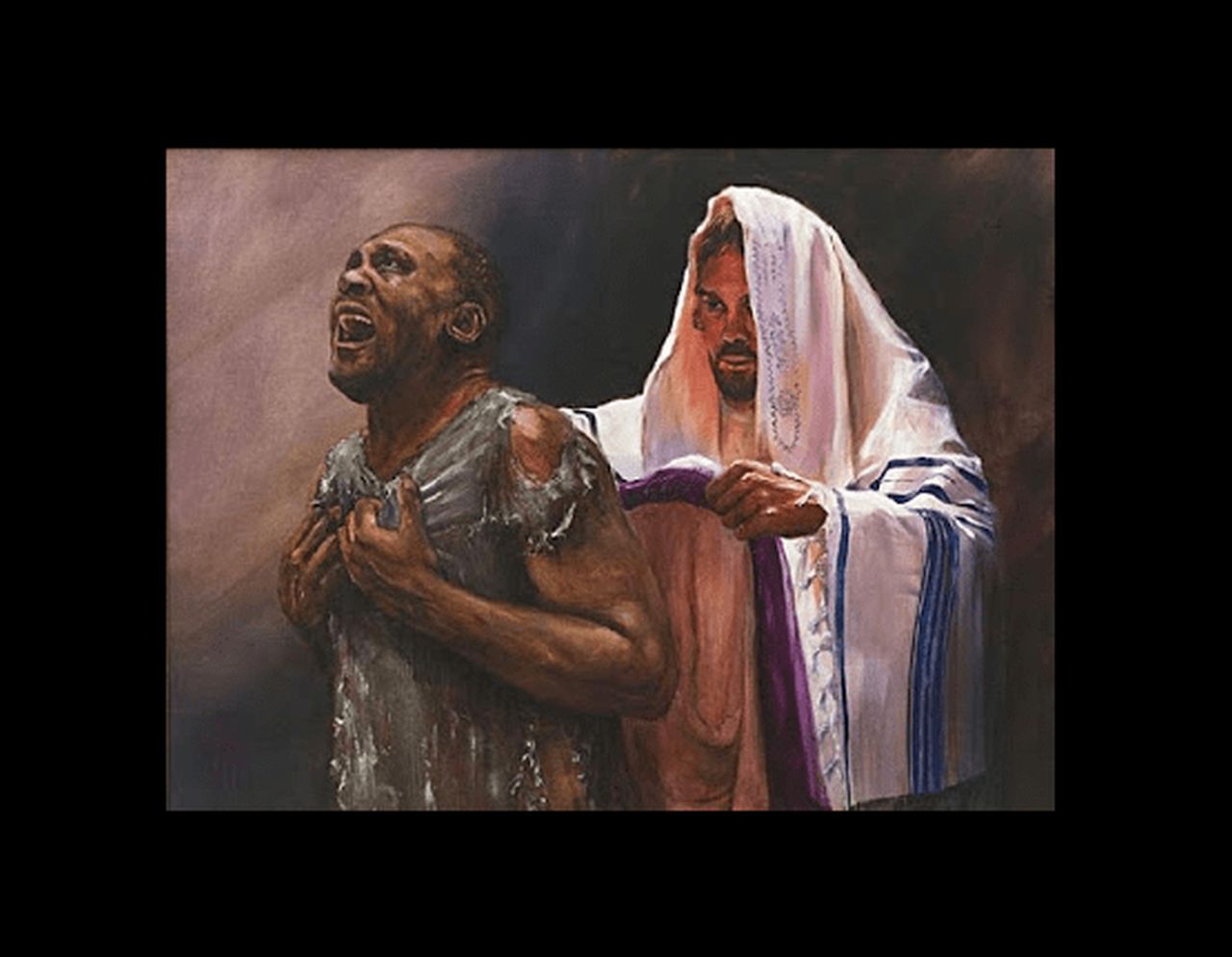
The Sin and the Cause of Prayerlessness by Andrew Murray
From the book The Prayer Life by Andrew Murray
Chapter 1
If conscience is to do its work, and the contrite heart is to feel its misery, it is necessary that each individual should mention his sin by name. The confession must be severely personal. In a meeting of ministers there is probably no single sin which each one of us ought to acknowledge with deeper shame – ‘Guilty, verily guilty’ – than the sin of prayerlessness.
What is it, then, that makes prayerlessness such a great sin? At first it is looked upon merely as a weakness. There is so much talk about lack of time and all sorts of distractions that the deep guilt of the situation is not recognised. Let it be our honest desire that, for the future, the sin of prayerlessness may be to us truly sinful. Consider
1. What a reproach it is to God
There is the holy and most glorious God who invites us to come to him, to hold converse with him, to ask from him such things as we need, and to experience what a blessing there is in fellowship with him. He has created him we might find our highest glory and salvation.
What use do we make of this heavenly privilege? How many there are who take only five minutes for prayer! They say that they have no time and that the heart desire for prayer is lacking; they do not know how to spend half an hour with God! It is not that they absolutely do not pray; they pray every day – but they have no joy in prayer, as a token of communion with God which shows that God is everything to them.
If a friend comes to visit them, they have time, they make time, even at the cost of sacrifice, for the sake of enjoying converse with him. Yes, they have time for everything that really interests them, but no time to practise fellowship with God and delight themselves in him! They find time for a creature who can be of service to them; but day after day, month after month passes, and there is no time to spend one hour with God.
Do not our hearts begin to acknowledge what a dishonour, what a despite of God this is, that I dare to say I cannot find time for fellowship with him? If this sin begins to appear plain to us, shall we not with deep shame cry out: ‘Woe is me, for I am undone, 0 God; be merciful to me, and forgive this awful sin of prayerlessness.’ Consider further
2. It is the cause of a deficient spiritual life
It is a proof that, for the most part, our life is still under the power of ‘the flesh’. Prayer is the pulse of life; by it the doctor can tell what is the condition of the heart. The sin of prayerlessness is a proof for the ordinary Christian or minister that the life of God in the soul is in deadly sickness and weakness.
Much is said and many complaints are made about the feebleness of the Church to fulfill her calling, to exercise an influence over her members, to deliver them from the power of the world, and to bring them to a life of holy consecration to God. Much is also spoken about her indifference to the millions of heathen whom Christ entrusted to her that she might make known to them his love and salvation. What is the reason that many thousands of Christian workers in the world have not a greater influence? Nothing save this – the prayerlessness of their service. In the midst of all their zeal in the study and in the work of the Church, of all their faithfulness in preaching and conversation with the people, they lack that ceaseless prayer which has attached to it the sure promise of the Spirit and the power from on high. It is nothing but the sin of prayerlessness which is the cause of the lack of a powerful spiritual life! Consider further
3. The dreadful loss which the Church suffers as a result of the prayerlessness of the minister
It is the business of a minister to train believers up to a life of prayer; but how can a leader do this if he himself understands little the art of conversing with God and of receiving from the Holy Spirit, every day, out of heaven, abundant grace for himself and for his work? A minister cannot lead a congregation higher than he is himself. He cannot with enthusiasm point out a way, or explain a work, in which he is not himself walking or living.
How many thousands of Christians there are who know next to nothing of the blessedness of prayer fellowship with God! How many there are who know something of it and long for a further increase of this knowledge, but in the preaching of the Word they are not persistently urged to keep on till they obtain the blessing! The reason is simply and only that the minister understands so little about the secret of powerful prayer and does not give prayer the place in his service which, in the nature of the case and in the will of God, is indispensably necessary. Oh, what a difference we should notice in our congregations if ministers could be brought to see in its right light the sin of prayerlessness and were delivered from it! Once more consider:
4. The impossibility of preaching the gospel to all men-as we are commanded by Christ to do -so long as this sin is not overcome and cast out.
Many feel that the great need of missions is the obtaining of men and women who will give themselves to the Lord to strive in prayer for the salvation of souls. It has also been said that God is eager and able to deliver and bless the world he has redeemed, if his people were but willing, if they were but ready, to cry to him day and night But how can congregations be brought to that unless there comes first an entire change in ministers and that they begin to see that the indispensable thing is not preaching, not pastoral visitation, not church work, but fellowship with God in prayer till they are clothed with power from on high?
Oh, that all thought and work and expectation concerning the kingdom might drive us to the acknowledgement of the sin of prayerlessness! God help us to root it out! God deliver us from it through the blood and power of Christ Jesus! God teach every minister of the Word to see what a glorious place he may occupy if he first of all is delivered from this root of evils; so that with courage and joy, in faith and perseverance, he can go on with his God!
The sin of prayerlessness! The Lord lay the burden of it so heavy on our hearts that we may not rest till it is taken far from us through the name and power of Jesus He will make this possible for us.
A witness from America
In 1898, there were two members of the Presbytery in New York who attended the Northfield Conference for the deepening of the spiritual life. They returned to their work with the fire of a new enthusiasm. They endeavoured to bring about a revival in the entire Pres bytery. In a meeting which they held, the chairman was guided to ask the brethren a question concerning their prayer life: ‘Brethren,’ said he, ‘let us today make confession before God and each other. It will do us good. Will everyone who spends half an hour every day with God in connection with his work hold up a hand?’ One hand was held up. He made a further request: ‘All who thus spend fifteen minutes hold up a hand.’ Not half of the hands were held up. Then he said: ‘Prayer, the working power of the Church of Christ, and half of the workers make hardly any use of it! All who spend five minutes hold up hands.’ All hands went up. But one man came later with the confession that he was not quite sure if he spent five minutes in prayer every day. ‘It is,’ said he, ‘a terrible revelation of how little time I spend with God.’
The cause of prayerlessness.
In an elder’s prayer meeting, a brother put the question: ‘What, then, is the cause of so much prayerlessness? Is it not unbelief?’
The answer was: ‘Certainly; but then comes the question what is the cause of that unbelief?’ When the disciples asked the Lord Jesus: ‘Why could not we cast the devil out?’ His answer was: ‘Because of your unbelief.’ He went further and said: ‘Howbeit this kind goeth not out but by prayer and fasting’ (Matt. 17.19-21). If the life is not one of self-denial – of fasting – that is, letting the world go; of prayer – that is, laying hold of heaven, faith cannot be exercised. A life lived according to the flesh and not according to the Spirit – it is in this that we find the origin of the prayerlessness of which we complain. As we came out of the meeting a brother said to me: ‘That is the whole difficulty; we wish to pray in the Spirit and at the same time walk after the flesh, and this is impossible.’
If one is sick and desires healing, it is of prime importance that the true cause of the sickness be discovered. This is always the first step toward recovery. If the particular cause is not recognised, and attention is directed to subordinate causes, or to supposed but not real causes, healing is out of the question. In like manner, it is of the utmost importance for us to obtain a correct insight into the cause of the sad condition of deadness and failure in prayer in the inner chamber, which should be such a blessed place for us. Let us seek to realise fully what is the root of this evil.
Scripture teaches us that there are but two conditions possible for the Christian. One is a walk according to the Spirit, the other a walk according to ‘the flesh’. These two powers are in irreconcilable conflict with each other. So it comes to pass, in the case of the majority of Christians, that, while we thank God that they are born again through the Spirit and have received the life of God – yet their ordinary daily life is not lived according to the Spirit but according to ‘the flesh’. Paul writes to the Galatians: ‘Are ye so foolish? having begun in the Spirit, are ye now made perfect by the flesh?’ (Gal. 3.3). Their service lay in fleshly outward performances. They did not understand that where ‘the flesh’ is permitted to influence their service of God, it soon results in open sin.
So he mentions not only grave sins as the work of ‘the flesh’, such as adultery, murder, drunkenness; but also the more ordinary sins of daily life – wrath, strife, variance; and he gives the exhortation: ‘Walk in the Spirit, and ye shall not fulfill the lust of the flesh… If we live in the Spirit, let us also walk in the Spirit’ (Gal. 5.16, 25). The Spirit must be honoured not only as the author of a new life but also as the leader and director of our entire walk. Otherwise we are what the apostle calls ‘carnal’.
The majority of Christians have little understanding of this matter. They have no real knowledge of the deep sinfulness and godlessness of that carnal nature which belongs to them and to which unconsciously they yield. ‘God… condemned sin in the flesh’ (Rom. 8.3) – in the cross of Christ. ‘They that are Christ’s have crucified the flesh with the affections and lusts’ (Gal. 5.24). ‘The flesh’ cannot be improved or sanctified. ‘The carnal mind is enmity against God; for it is not subject to the law of God, neither indeed can be’ (Rom. 8.7). There is no means of dealing with ‘the flesh’ save as Christ dealt with it, bearing it to the cross. ‘Our old man is crucified with him’ (Rom. 6.6); so we by faith also crucify it, and regard and treat it daily as an accursed thing that finds its rightful place on the accursed cross.
It is saddening to consider how many Christians there are who seldom think or speak earnestly about the deep and immeasurable sinfulness of ‘the flesh’-‘In me (that is, in my flesh) dwelleth no good thing'(Rom. 7.18). The man who truly believes this may well cry out: ‘I see another law in my members … bringing me into captivity to the law of sin… 0 wretched man that I am! who shall deliver me from the body of this death?’ (Rom. 7.23, 24). Happy is he who can go further and say: ‘I thank God, through Jesus Christ our Lord… For the law of the Spirit of life in Christ Jesus hath made me free from the law of sin and death’ (Rom. 7.25; 8.2).
Would that we might understand God’s counsels of grace for us! ‘The flesh’ on the cross – the Spirit in the heart and controlling the life.
This spiritual life is too little understood or sought after; yet it is literally what God has promised and will accomplish in those who unconditionally surrender themselves to him for this purpose.
Here then we have the deep root of evil as the cause of a prayerless life. ‘The flesh’ can say prayers well enough, calling itself religious for so doing and thus satisfying conscience. But ‘the flesh’ has no desire or strength for the prayer that strives after an intimate knowledge of God; that rejoices in fellowship with him; and that continues to lay hold of his strength. So, finally, it comes to this, ‘the flesh’ must be denied and crucified.
The Christian who is still carnal has neither disposition nor strength to follow after God. He rests satisfied with the prayer of habit or custom; but the glory, the blessedness of secret prayer is a hidden thing to him, till some day his eyes are opened, and he begins to see that ‘the flesh’, in its disposition to turn away from God, is the archenemy which makes powerful prayer impossible for him.
I had once, at a conference, spoken on the subject of prayer and made use of strong expressions about the enmity of ‘the flesh’ as a cause of prayerlessness. After the address, the minister’s wife said that she thought 1 had spoken too strongly. She also had to mourn over too little desire for prayer, but she knew her heart was sincerely set on seeking God. 1 showed her what the word of God said about ‘the flesh’, and that everything which prevents the reception of the Spirit is nothing else than a secret work of ‘the flesh’. Adam was created to have fellowship with God and enjoyed it before his fall. After the fall, however, there came immediately, a deep- seated aversion to God, and he fled from him. This incurable aversion is the characteristic of the unregenerate nature and the chief cause of our unwillingness to surrender ourselves to fellowship with God in prayer. The following day she told me that God had opened her eyes; she confessed that the enmity and unwillingness of ‘the flesh’ was the hidden hindrance in her defective prayer life.
0 my brethren, do not seek to find in circumstances the explanation of this prayerlessness over which we mourn; seek it where God’s word declares it to be, in the hidden aversion of the heart to a holy God.
When a Christian does not yield entirely to the leading of the Spirit – and this is certainly the will of God and the work of his grace – he lives, without knowing it, under the power of ‘the flesh’. This life of ‘the flesh’ manifests itself in many different ways. It appears in the hastiness of spirit, or the anger which so unexpectedly arises in you, in the lack of love for which you have so often blamed yourself; in the pleasure found in eating and drinking, about which at times your conscience has chidden you; in that seeking for your own will and honour, that confidence in your own wisdom and power, that pleasure in the world, of which you are sometimes ashamed before God. All this is life ‘after the flesh’. ‘Ye are yet carnal’ (1 Con 3.3) that text, perhaps, disturbs you at times; you have not full peace and joy in God.
I pray you take time and give an answer to the question: Have 1 not found here the cause of my prayerlessness, of my powerlessness to effect any change in the matter? I live in the Spirit, 1 have been born again, but 1 do not walk after the Spirit -‘the flesh’ lords it over me. The carnal life cannot possibly pray in the spirit and power. God forgive me. The carnal life is evidently the cause of my sad and shameful prayerlessness.
The storm centre on the battlefield
Mention was made in conference of the expression ‘strategic position’ used so often in reference to the great strife between the kingdom of heaven and the powers of darkness.
When a general chooses the place from which he intends to strike the enemy, he pays most attention to those points which he thinks most important in the fight. Thus there was on the battlefield of Waterloo a farmhouse which Wellington immediately saw was the key to the situation. He did not spare his troops in his endeavours to hold that point: the victory depended on it. So it actually happened. It is the same in the conflict between the believer and the powers of darkness. The inner chamber is the place where the decisive victory is obtained.
The enemy uses all his power to lead the Christian and above all the minister, to neglect prayer. He knows that however admirable the sermon may be, however attractive the service, however faithful the pastoral visitation, none of these things can damage him or his kingdom if prayer is neglected. When the Church shuts herself up to the power of the inner chamber, and the soldiers of the Lord have received on their knees ‘power from on high’, then the powers of darkness will be shaken and souls will be delivered. In the Church, on the mission field, with the minister and his congregation, everything depends on the faithful exercise of the power of prayer.
In the week of conference I found the following in The Christian:
Two persons quarrel over a certain point. We call them Christian and Apollyon. Apollyon notices that Christian has a certain weapon which would give him a sure victory. They meet in deadly strife, and Apollyon resolves to take away the weapon from his opponent and destroy it. For the moment the main cause of the strife has become subordinate; the great point now is who shall get possession of the weapon on which everything depends? It is of vital importance to get hold of that.
So it is in the conflict between Satan and the believer. God’s child can conquer everything by prayer. Is it any wonder that Satan does his utmost to snatch that weapon from the Christian, or to hinder him in the use of it?
How now does Satan hinder prayer? By temptation to postpone or curtail it, by bringing in wandering thoughts and all sorts of distractions; through unbelief and hopelessness. Happy is the prayer hero who, through it all, takes care to hold fast and use his weapon. Like our Lord in Gethsemane, the more violently the enemy attacked the more earnestly he prayed and ceased not till he had obtained the victory. After all the other parts of the armour had been named, Paul adds: ‘with all prayer and supplication in the Spirit’ (Eph. 6.18). Without prayer, the helmet of salvation, and the shield of faith, and the sword of the Spirit which is God’s word, have no power. All depends on prayer. God teach us to believe and hold this fast!
Support | STORE | Podcasts | Because You Care Page | The Greatest of these is Charity | Be Ready in the Morning [podcast] | The Sure Mercies of David [podcast] | That Repentance and Remission of Sins should be Preached [podcast] | At His Feet | Prepared to be Used of God | Grace and Truth Bible School [modules] | 7 Study Guides to a Greater Foundation in Christ



Abiding
The Killing Power of the Holy Ghost with Judge Travis Bryan III [podcast]

“For if ye live after the flesh, ye shall die: but if ye through the Spirit do mortify the deeds of the body, ye shall live.” Romans 8:13
“Always bearing about in the body the dying of the Lord Jesus, that the life also of Jesus might be made manifest in our body. 11 For we which live are alway delivered unto death for Jesus’ sake, that the life also of Jesus might be made manifest in our mortal flesh. 12 So then death worketh in us, but life in you.” 2 Corinthians 4:10-12
“The cross of Christ is the sweetest burden that I ever bore; it is such a burden as wings are to a bird, or sails to a ship, to carry me forward to my harbor.” Samuel Rutherford
Momentum in the power of the Holy Spirit comes from a continual perpetual downward dying motion, being then raised up reciprocally in the resurrection grace of Jesus Christ.
“The flesh loses its power over you when it is crucified. Christ’s power begins to reign. The worries and stress of this life leave. And you begin to have the peace that passes all understanding. Philippines 4:7 Amen! A crucified life! Hallelujah all praise to Jesus.” Karen Cochran
God’s plan for your life….here it is:
“I am crucified with Christ: nevertheless I live; yet not I, but Christ liveth in me: and the life which I now live in the flesh I live by the faith of the Son of God, who loved me, and gave himself for me.” Galatians 2:20
The ministry has put together 3 volumes sure to deepen your life in Christ, in the crucified life. 3 volumes to boost your life in Christ, in the cross He commanded us to take up – and by which He raises us upward in His glorious power and grace (Luke 9:23-24).
Support | STORE | Podcasts | Jail/Prison Ministry | Mexico Mission here | All Ministry Updates | The Crucified Life | Fasting and Prayer | True Repentance | Discipleship | Got Breakthrough? Here it is!




Abiding
The LORD Lift Up His Countenance Upon Thee, and Give Thee Peace [podcast]

“For we ourselves also were sometimes foolish, disobedient, deceived, serving divers lusts and pleasures, living in malice and envy, hateful, and hating one another. 4 But after that the kindness and love of God our Saviour toward man appeared, 5 Not by works of righteousness which we have done, but according to his mercy he saved us, by the washing of regeneration, and renewing of the Holy Ghost; 6 Which he shed on us abundantly through Jesus Christ our Saviour; 7 That being justified by his grace, we should be made heirs according to the hope of eternal life.” Titus 3:3-7
“The LORD bless thee, and keep thee: 25 The LORD make his face shine upon thee, and be gracious unto thee: 26 The LORD lift up his countenance upon thee, and give thee peace. ” Numbers 6:24-26
Support | STORE | Podcasts | The Return of Christ | Stewardship | Where to Give and Where Not to Give | Fruit Abounding to Your Account! | Victory in Jesus | Discipleship | The Glorious Grace of God | The Restoring Love of Our God | God’s Mercy | Spiritual Warfare | Justification | Grace and Good Works [podcast]




Abiding
Mexico Army Personnel Receive the Gospel [podcast]

“Excellent podcast! I am in awe of what God is doing in the hearts of the people of Mexico.” Karen Cochran
“But by the grace of God I am what I am: and his grace which was bestowed upon me was not in vain; but I laboured more abundantly than they all: yet not I, but the grace of God which was with me.” 1 Corinthians 15:10
“Therefore, my beloved brethren, be ye stedfast, unmoveable, always abounding in the work of the Lord, forasmuch as ye know that your labour is not in vain in the Lord.” 1 Corinthians 15:58
Let’s Grow Together! Sign up here to begin receiving the Moments with Our Master email devotional that is sure to help you grow in His grace and in the knowledge of our LORD and Savior Jesus Christ (2 Pet. 1:2; 3:18). It’s sent out for the edification of the body of Christ. Sign Up HERE.
Support | STORE | Podcasts | Jail/Prison Ministry | Mexico Mission here | All Ministry Updates | More on Assurance here | Because You Care Page | The Greatest of these is Charity | Be Ready in the Morning [podcast] | The Sure Mercies of David [podcast] | That Repentance and Remission of Sins should be Preached [podcast] | At His Feet | Knowing God | The Cross Life | 100’s of Christ-centered Scripture-rich Podcasts | Christology = the Study of Christ



 America12 months ago
America12 months agoThe Drugging of America: The Pharmakeia Sorcery Deception [podcast]

 Articles2 years ago
Articles2 years agoChildren being Rescued in Tunnels: Happening Now – UPDATE!

 Articles8 years ago
Articles8 years agoSelf-Examination in Preparation for the Lord’s Return

 Apostasy2 years ago
Apostasy2 years agoSHOCKING List of False Prophets Most Believe are True












































